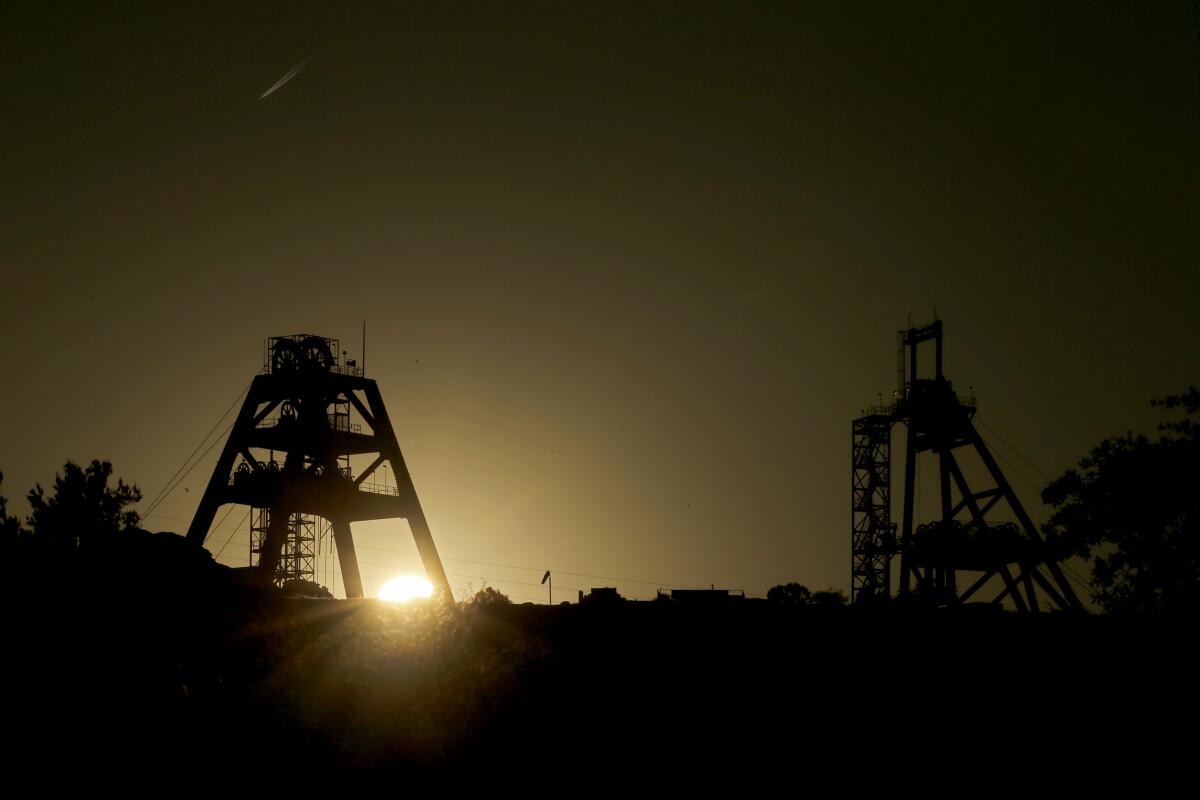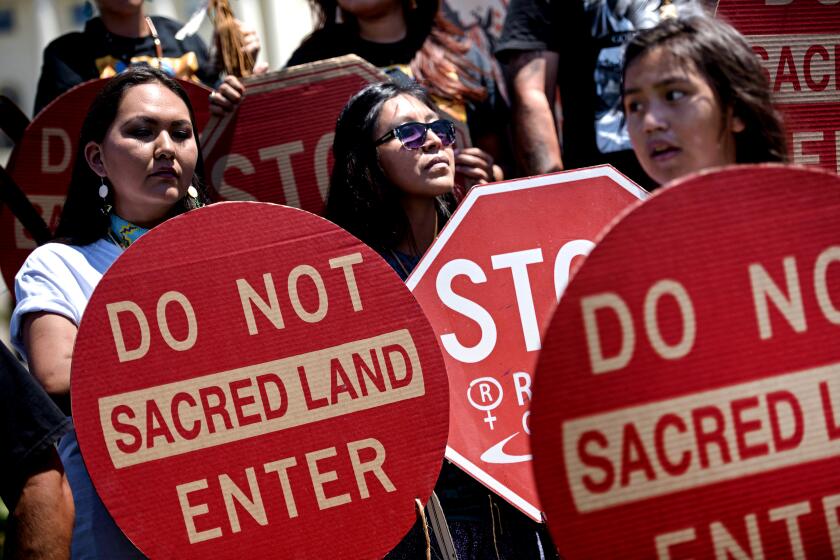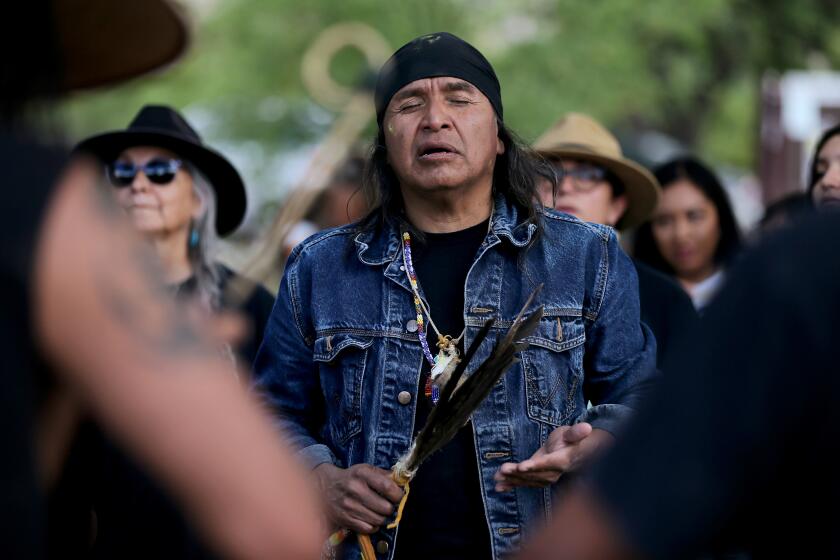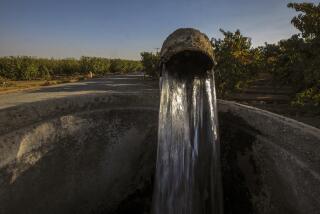Opinion: Why is Arizona poised to give away groundwater to mining when it faces a devastating water crisis?

With a groundwater crisis rapidly unfolding in the Phoenix metropolitan region, the Biden administration may be on the verge of approving a massive copper mining project in central Arizona that will allow the state to give away $400 million worth of groundwater over the 40-year life of the project.
This is the result of a stunning loophole in Arizona’s water laws. It now depends on the Biden administration to stop this madness.
To pass the state’s 1980 groundwater legislation , lawmakers exempted Arizona’s powerful mining industry from any restrictions on how much groundwater mines can consume. The law allows mines to pump unlimited groundwater without paying the state a dime. That law is now colliding with the stark reality that Arizona is facing a devastating deficit in groundwater supplies at the same time that Colorado River water is being squeezed by persistent drought.
A site in Arizona sacred to tribal nations for 1,500 years is about to be destroyed by a copper mine that will form a 1,000-foot deep crater.
Based on current water prices, Arizona would be giving $404 million worth of groundwater to the two largest mining companies in the world, which plan to construct the Resolution Copper Mine 70 miles east of Phoenix on Oak Flat in the Tonto National Forest. Oak Flat, known as Chí’chil Biłdagoteel to the San Carlos Apache Tribe, is a sacred site to many tribal nations in the region for the last 1,500 years and has been included on the National Register of Historic Places as a Traditional Cultural Property.
Aside from the culturally destructive impact, Resolution Copper, a joint venture between the multinational companies BHP and Rio Tinto, will consume about 250 billion gallons of groundwater during the life of the mine.
Arizona Gov. Katie Hobbs has the opportunity, indeed the obligation, to lead the way to a more secure water future by demanding fundamental reforms of Arizona groundwater laws beginning with closing the mining loophole and establishing a price for groundwater. But it will take time to overcome entrenched political opposition to any regulation or taxation of Arizona’s groundwater.
Apache tribe members say Arizona land slated to be destroyed for a copper mine is sacred. Their legal battle is now a major religious liberty test.
The only reason Resolution Copper is in position to benefit from Arizona’s weak groundwater law is because of a rider attached to a defense spending bill passed in December 2014 that was ushered through Congress without debate by the late Sen. John McCain.
The rider requires the federal government to trade 2,422 acres of Tonto National Forest including Oak Flat for private lands owned by Resolution Copper within 60 days of publication of the final environmental impact statement, regardless of the environmental and cultural impacts of the mine. In a June 2022 report, the U.S. Bureau of Land Management sharply criticized the U.S. Forest Service’s failure to adequately analyze groundwater impacts in its FEIS for the Resolution Copper Mine.
The Trump administration rushed to publish the FEIS on Jan. 15, 2021, five days before President Trump left office. The Biden administration rescinded the FEIS on March 1, 2021, stating that more time was needed to ensure compliance with federal laws and for formal consultation with Indian tribes affected.
This year, a federal attorney stated during legal proceedings that the Biden administration expected to republish the FEIS this summer. The administration has since delayed that timeline and there is no date set to publish the FEIS.
The Biden administration should go beyond pausing the process and must fundamentally revise the FEIS to fully account for the cost of the water that Arizona will give away to Resolution Copper. This massive groundwater subsidy to the mining venture will ultimately cost the federal government as it wrestles to address drought and water scarcity in the region. (The administration will soon be paying $1.2 billion to Nevada, Arizona and California to cut their consumption of Colorado River water.)
Congress also has a role to play. Arizona Sens. Kyrsten Sinema and Mark Kelly should lead the way to conserve Arizona’s groundwater by supporting the Save Oak Flat From Foreign Mining Act. So far, they have remained silent on this legislation sponsored by Rep. Raul M. Grijalva (D-Ariz). The bill would repeal the mandated swap of federal land to Resolution Copper.
Arizona is facing a water crisis unlike anything in our history. A revised FEIS that includes the cost and impact of Resolution’s groundwater pumping and passage of the Save Oak Flat From Foreign Mining Act would allow Arizonans time to enact new legislation to end the mining industry’s unfettered access to their most precious and valuable resource.
Terry Rambler is chairman of the San Carlos Apache Tribe.
More to Read
A cure for the common opinion
Get thought-provoking perspectives with our weekly newsletter.
You may occasionally receive promotional content from the Los Angeles Times.












